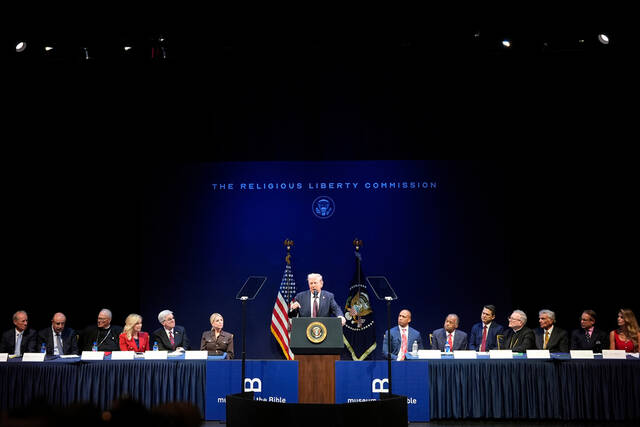Cyber charter schools were created in 2002, and the law creating them had remained largely unchanged in the 22 years of its existence until Act 55 of 2024. Act 55 implemented several critical reforms related to accountability, transparency and ethics that advocates have been asking to see for years. Act 55 also made one small change to the way school districts pay cyber charter schools for special education students.
These changes were truly historic. No prior administration and legislature have been able to overcome the formidable cyber charter lobby in place to protect the status quo. And local school leaders are thankful for these much-needed reforms. However, there’s still much work to be done, especially as it relates to cyber charter school funding.
State Auditor General Tim DeFoor, a Republican, became the third consecutive state auditor general to call for changes to the way cyber charter schools are funded. Although DeFoor did not use as colorful language as his predecessor, Democrat Eugene DePasquale, who called Pennsylvania’s charter school law the “worst charter school law in the United States,” he did recognize several of the same cyber charter school funding flaws local school leaders have known about for years.
First, cyber charter schools receive 500 different tuition rates from school districts because the current funding method uses a school district’s expenditures to come up with a tuition rate. This calculation includes several expenses that cyber charter schools don’t have, such as tuition payments to charter schools, which inflates what school districts pay. The result is huge variations in tuition rates — varying by as much as $18,000, despite the cyber charter school providing the same virtual education program. There’s simply no rational basis for this method of funding.
Second, even after the reforms of Act 55, cyber charter schools receive another 500 different tuition rates from school districts for special education students without any consideration as to the needs of the student. The current funding method assumes that all special education students in charter schools have the same needs and that those needs are equal to those of special education students in school districts. However, we know for a fact that vast majority of the students with the greatest level of needs are educated in school districts while the vast majority of special education students in charter schools have the lowest level of needs. Every special education student should have the services and supports they need. Funding for those students should reflect their needs rather than be based on assumptions.
Finally, these funding flaws impact you whether you have kids in school or not. The flaws outlined above force school districts to overpay cyber charter schools. As those costs continue to rise for school districts whose primary source of funding is property taxes, your property taxes continue to rise. For school districts that choose to limit, or not increase property taxes, those increase costs force cuts to programs and services that impact district students. We can do better.
Although school leaders like myself are grateful for the reforms in Act 55, there’s still unfinished business when it comes to cyber charter school reform. I can only hope that the General Assembly and Administration are up to the challenge and put aside the rhetoric and look at the facts. When you do, the need for further reform is undeniable.
Allison Mathis has been a member of the North Hills School District board of education since 2017 and has served as president since December 2019. She is also president of the Pennsylvania School Boards Association.








